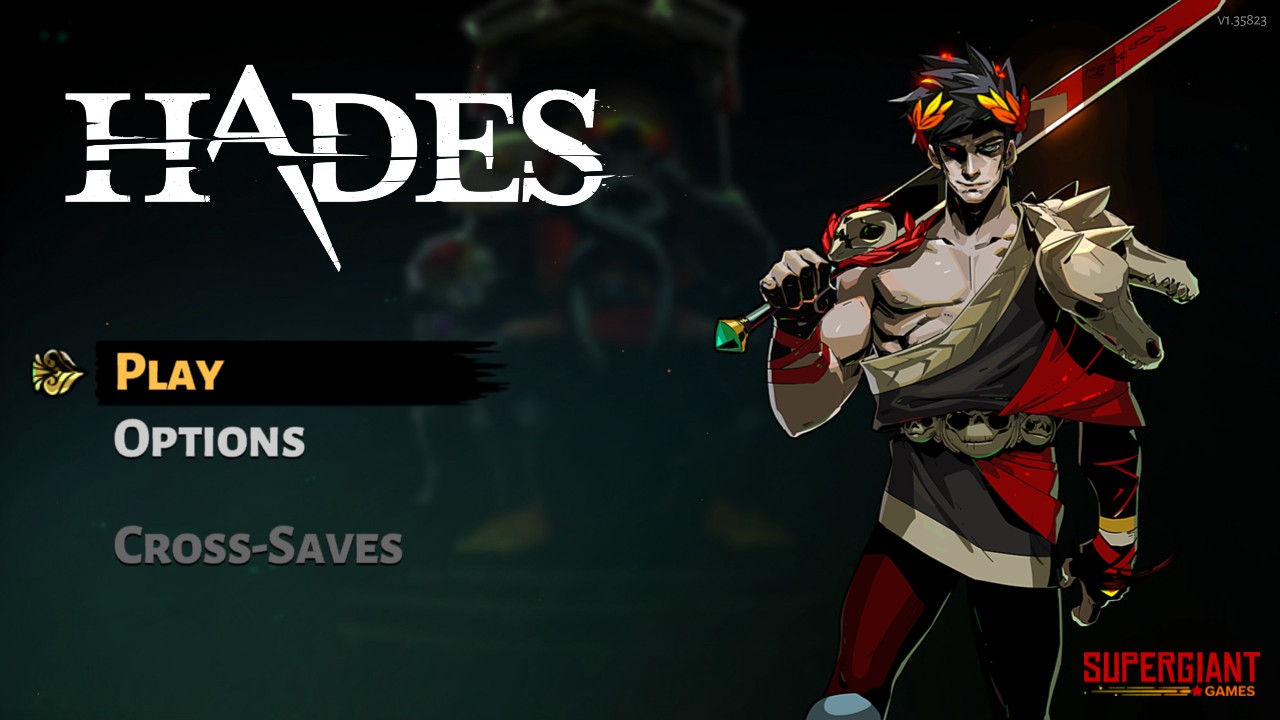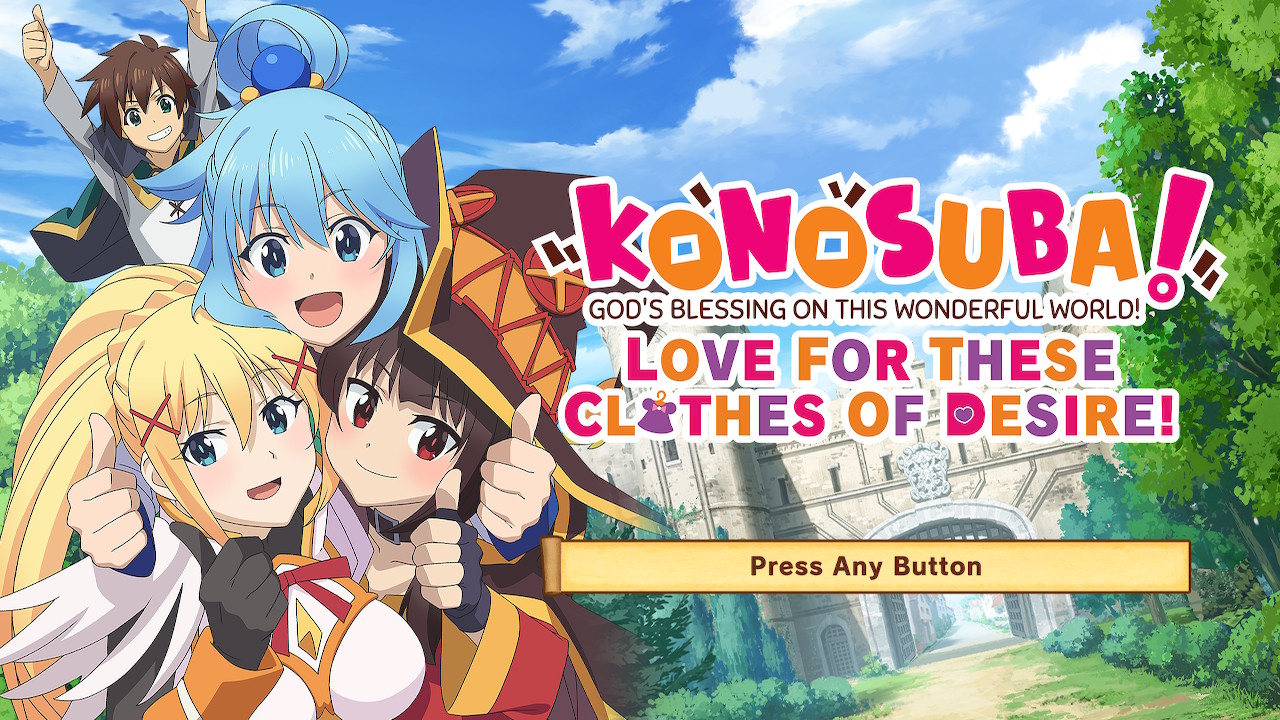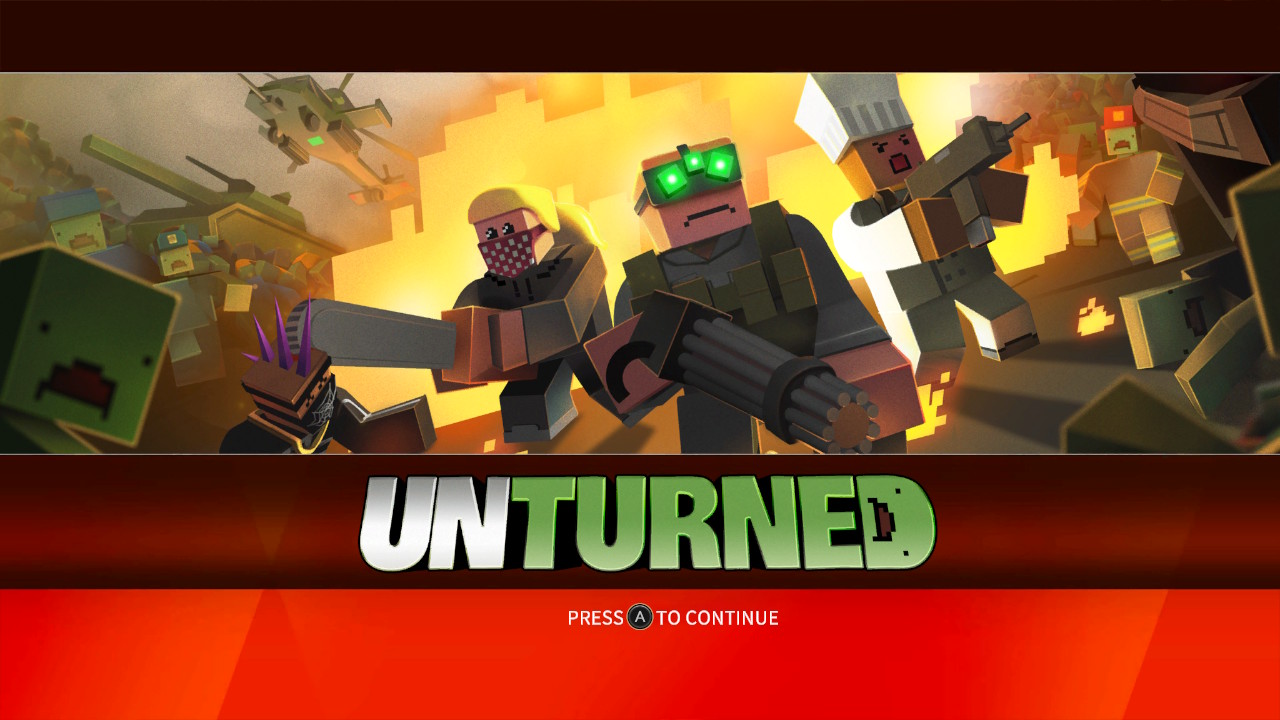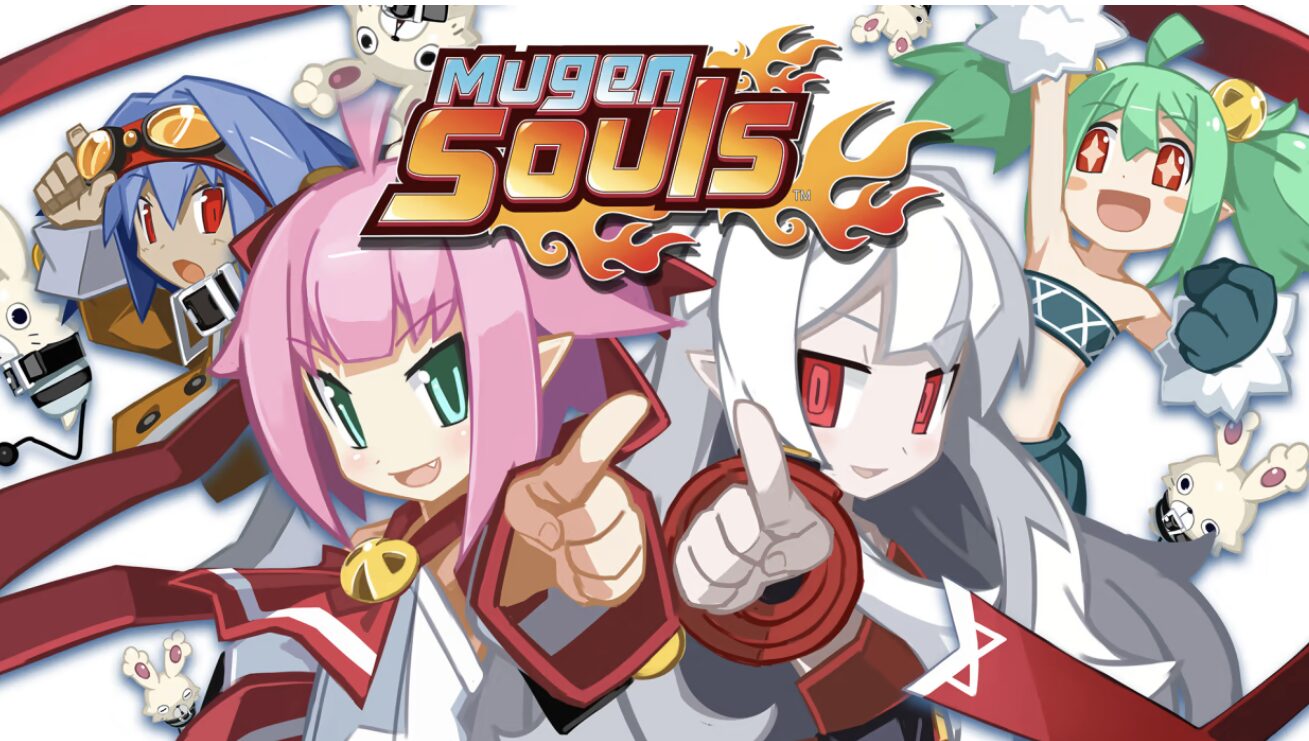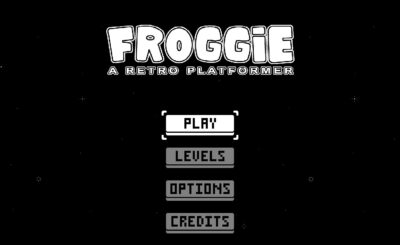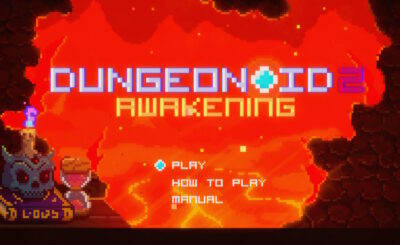Developer: SuperGiant Games Genre: Action, Roguelike Release Date: 09.17.20 Composer : Darren Korb
Hades is the latest from SuperGiant, the Indie-Darling who previously developed games like Bastion, Transistor, and Pyre, all to widespread critical acclaim. Is Hades in the same league as their previous titles? Upfront, much like their previous games, Hades is strikingly gorgeous. Almost as if a playable painting. The music, like previous games is also phenomenal, a great listen, even outside of the game. However, with Hades, I found majority of the music doesn’t quite compliment the gameplay in a way it should. With the chaos that goes in in gameplay, you’ll often not even notice some of the music with how subdued it is and what kind of game Hades is.
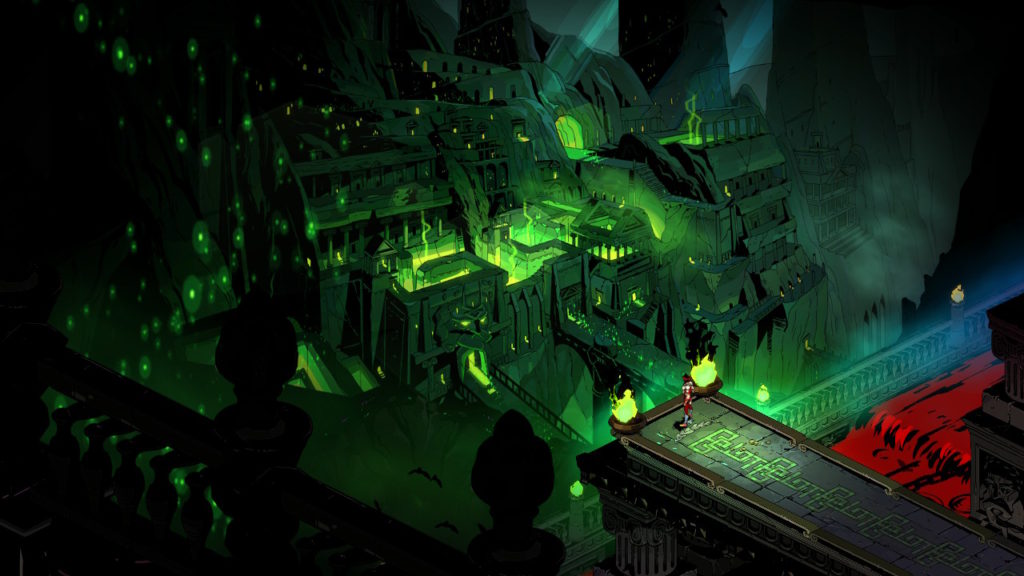
So what kind of game is Hades anyway? Stop me if you’ve heard this one, but Hades, is one of many indie games that is a roguelike. Joking aside, Hades’ use of the genre doesn’t quite bother me or bore me, as it’s mixed with a genre I find myself quite interest in; Action. The core of the gameplay is a chunky, meaty feeling action game, having you use your variety of attacks, specials, dashes, ranged moves named Casts, and more to take care of everything in your way to get further to the top, so to say. With most roguelikes, the variety is what keeps players going, from random rooms to lots of powerups, and a sea of collectables to take home, Hades has no shortage of any of this. You’ll start with your sword, the first room you’ll find yourself in in your way out greets you with a choice of three blessings, referred to as Boons, these are usually stat buffs, a little addon to an attack, like giving your attacks a widespread shock around other enemies, a dash leaving an after-effect which can drain enemy HP, or even having the power to deflect attacks, which GREATLY come in handy. Granted you don’t die, these are all permanent. Each of these can all be upgraded or replaced if desired, and in order to get the strongest tier of these, you’ll need to trade or use a very specific upgrade. As you move on, after succeeding in an encounter, you’ll be given the choice of how to proceed, two doors, different rooms with different rewards, each path giving a preview of what you’d get, so it’s up to you to see what sounds better. Paths can gift you more added perks or abilities, but also give what you’ll use as currency. Obols for buying various temporary buffs, healing items, even new Boons. Gemstones for renovations at home. Darkness for permanent upgrades to ones self. Keys for new weapons, or unlocking more perks to spend Darkness on. Ambrosia and Nectar to build a relationship, as well as possibly a romance with others. These are just a small handful of what you’ll find. That’s not all however, with some rooms being shops to spend your Obols, fountains to heal one’s self between encounters, and even a nice room of respite with a person to speak to for gifts, changing depending on who and where.
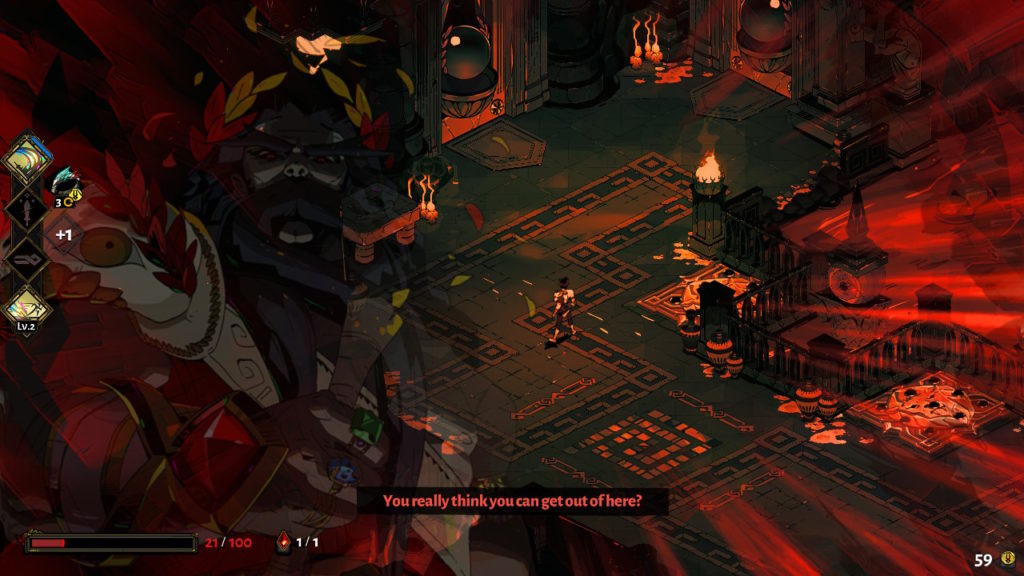
Now, what is all of this without context? Just a decent roguelike action game, nothing more. Hades however gives context to everything with it’s story, settings, and characters. In Hades, you play as the son of Hades, Zagreus, in his attempt to reach Olympus. Along the way, many a gods will assist you in your journey, raging from gods of Olympus like Ares, Aphrodite, Zeus, and Poseidon, to name a few. They are the ones that gift you with Boons, but occasionally you’ll have to chose in the same room between two Gods you’ve taken blessing from, which has them momentarily against you. Chthonic Gods also exist however, while most are friendly to Zagreus at home, few, such as Megaera and her sisters stop at nothing in the escape attempts to stop and outright kill him. Not often do roguelikes give justification for how the rooms are all random, despite being the same area you’d be going to again and again, but Hades attempting to keep his son from reaching Olympus, mixing around everything and everywhere feels fitting and would make sense. Zagreus dying, only to sent back to where he started makes sense, as he can’t really die, he’s only being sent back to the underworld.
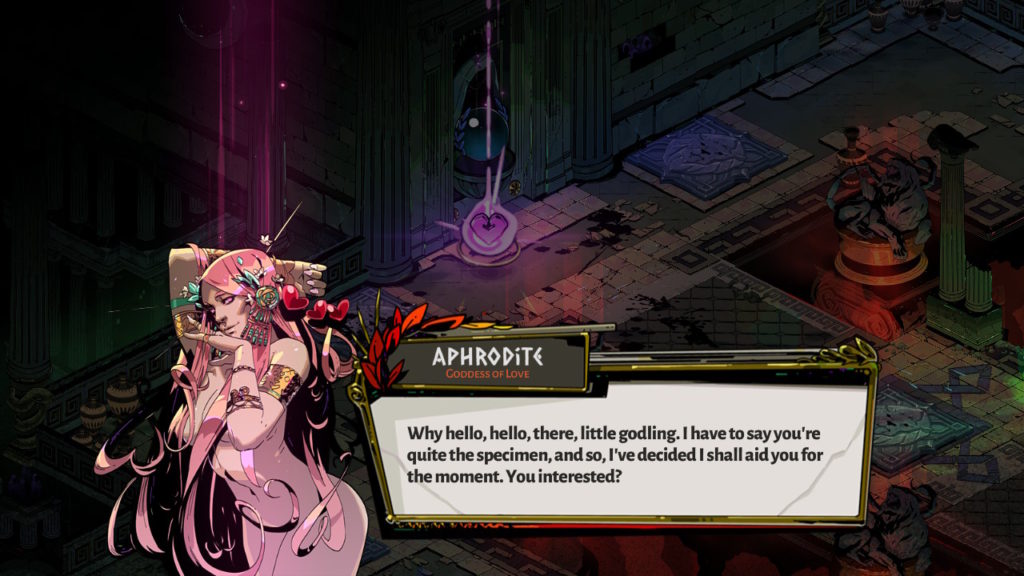
The decent size cast is always a welcome sight, with how often they cycle around, you don’t see everyone all the time, and their dialogue, as well as the dialogue period seems to never repeat, at least not in my playthrough. It’s all contextual. How you die, where you die, who you took out, who took you out. Hypnos will always be there to make you feel bad in every which way you perish. Various gods will just have conversations you can snoop in on about the going ons, as will ones you personally speak to. Boss fight dialogue reflects if it’s not the first time. On top of all of this, all dialogue is voiced, rather fittingly at that. The gods all sound how you’d expect them to look a sign of great voice direction. As previously mentioned, you can romance many of the cast, and like good old Greek Mythology, this includes both males and females, which’s main use is getting Keepsakes which offer buffs and perks as long as equipped and Companions, which even assist you in battle when equipped.
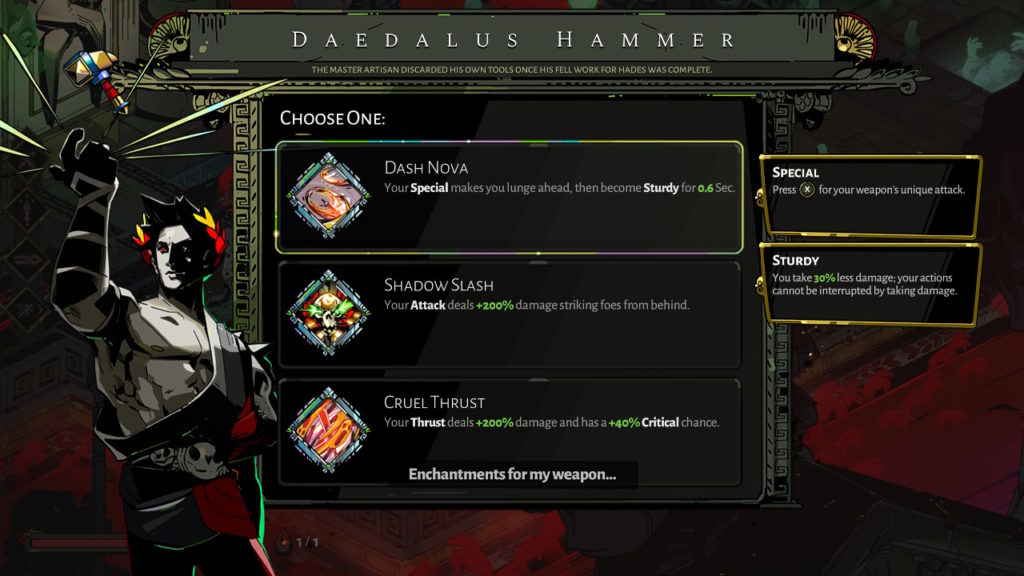
While only a single room of the non-action areas, Zagreus’ room can more be considered the hub. It’s right near the room to leave your home for starters. Zagreus has a desk that lists a set of Prophecies that are challenges that can be completed for a variety of rewards. Also in the room is the Mirror of Night. This is where the previously mentioned darkness for upgrades mechanic comes up. Choosing between Shadow or Fiery upgrades, the former being more of a defensive upgrade, while the latter a more offensive upgrade. They can be mix and matched, but you can only use one side per upgrade. The one key upgrade to look out for is Death Defiance, while expensive, it grants an extra life per escape attempt.
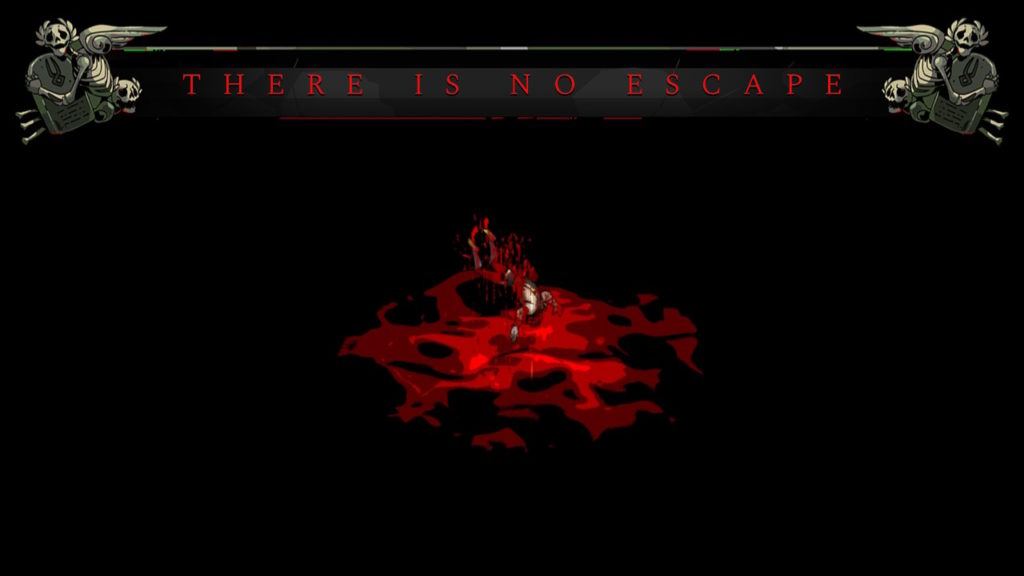
Say you finally get to the top and escape, what next? A quite vast amount of post game content, if you could call it that, as the story continues. Making Pacts is the big one. Somewhat of a difficulty modifier, which rewards you greatly with how much you raise the heat and punish yourself. The difficulty with this can get to ludicrous levels, but for those in need of more challenge, it’s there. This is the “easier” way to get more of the rarer items. Quite a few of these go towards the renovation aspect previously mentioned. Most players will go straight for the renovations that allow for more drops in gameplay, healing fountains between rooms for a small respite, immediate rewards. You can even get a fishing rod to well…fish, which can be traded for items. However, you can also work on the plethora of cosmetic changes, especially to your room. Fill Zagreus’s room up to liven it up, change the color of the walls, fix Cerberuses damage to the main hall, unlock a music player. Even without beating the game, after a set number of escape attempts, successful or not, you’ll find Chaos Gates which for a small fee of health take you to Chaos, who’s Boons allow for a little fun. They begin as Curses, granting much higher damage, restricting use of an ability with penalty of damage, blocking earning of currency, etc… They soon after a few encounters become blessings with boosts in attack damage, health, multiplying pickups to a potentially absurd degree, and even granting an extra Death Defiance. This is all to say if you’re good enough to play with the curses.
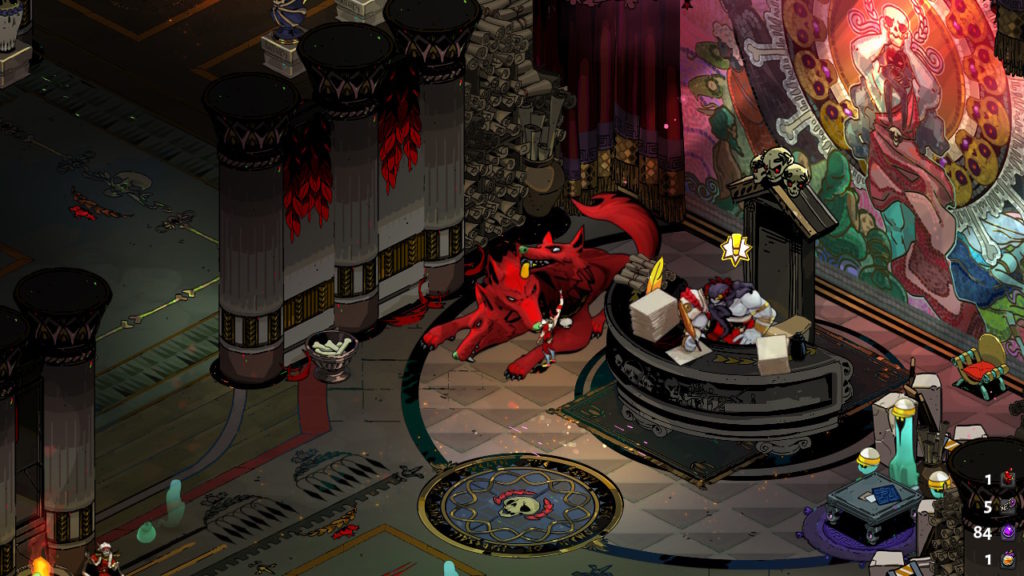
Outside of the questionable sound mixing, I don’t have too many issues with Hades. Call me shallow, but with how many Roguelikes I play, all it takes to keep me interested is a change in control and gameplay. I love action games, and mixing it with a genre that I feel can grow stale is great for me. Mix this with a game with impeccable presentation and you have a game I would be crazy to not recommend. As someone who plays…quite a bit of roguelikes, Hades is the one to reignite my passion for the genre. And yes. You can pet the dog.
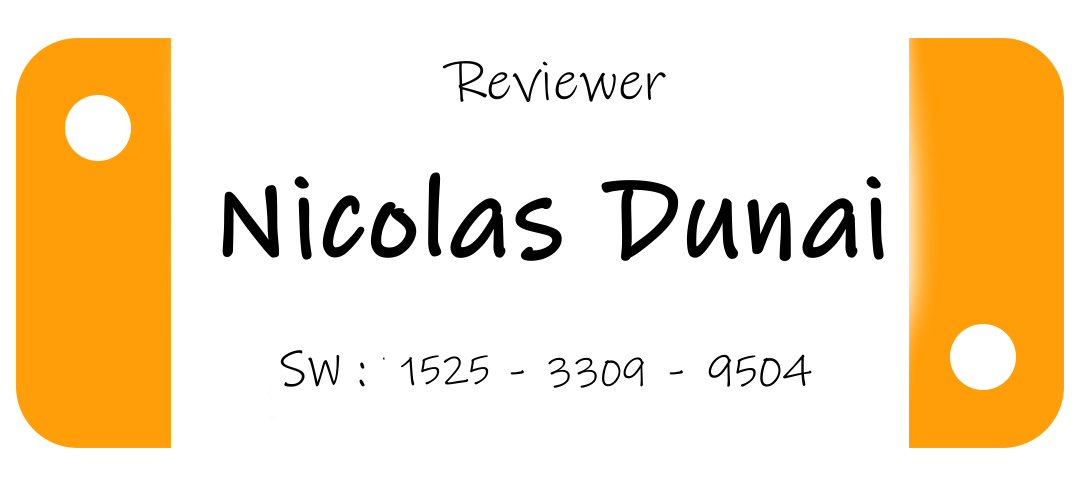
5/5





Buy Now: $24.99
Follow 
*Game Download Code supplied for review purposes
[Review] Hello Kitty and Friends Happiness Parade – Nintendo Switch

Developed By: Dabadu Published By: Rogue Games Categories: Rhythm Release…
